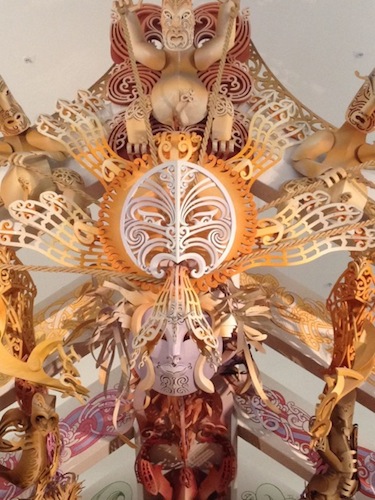While I also subscribe to the importance of the journey and, where possible, would prefer to travel slowly and savour the transition from the familiar to the unknown, most times I have to fly.
Then I stop being a traveler and, instead, become a producer of air passenger miles and carbon; a unit of yield as far as the airline is concerned; and a human piece of baggage that doesn’t have the benefit of being placed on a conveyor belt!
…
The biggest tragedy of modern, mass industrial tourism is that it has completely missed the point – the essence of travel is about being changed by our experience of unique places – yet, in our earnest attempts to standardize, homogenize, and render efficient or convenient, we have sucked the life blood, the juice, and, worse still, the mystery out of places.
An indigenous person will tell you that the land on which you stand is sacred. Their individual identity is shaped by their relationship with all aspects of the place they call home: the relationship they treasure with their ancestors and, in turn, the relationship those ancestors had with the place. Their presence also changed the place because all beings – whether perceived as sentient or not – are in a dialogue, a dance of vibration. So your presence will also affect this place and, if you are awake, aware and alert, you will let it change you.
Hence my assertion: all travel is local. Despite the act of getting there, all travelers do eventually arrive at a locality and experience its uniqueness.
And if all travel is local, then ideally all hosts should be indigenous in the deepest sense of the word….
Continue reading this article on the Conscious.Travel website


Discussion
No comments yet.